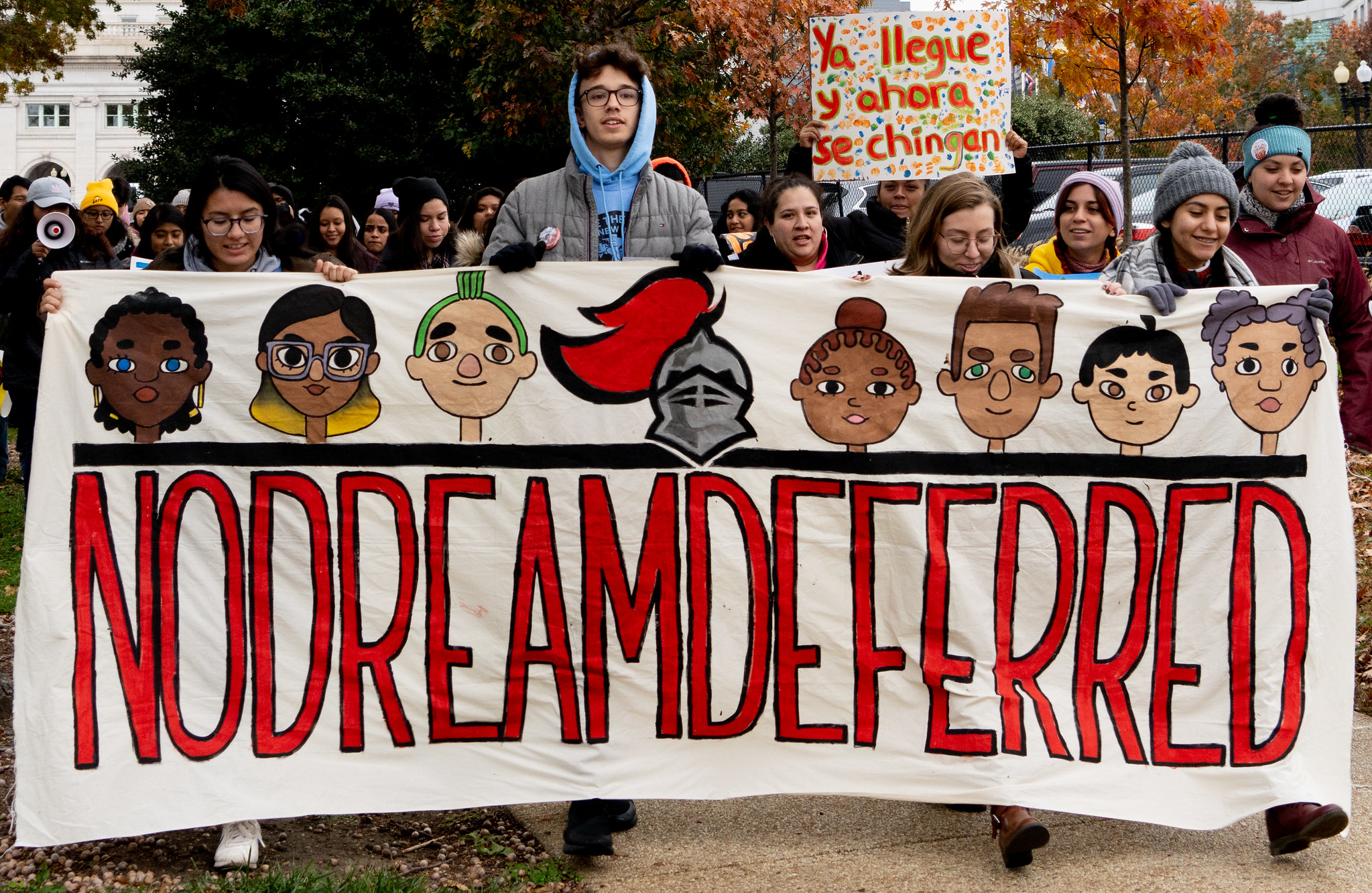(Phoenix, Arizona) — Hundreds of thousands of immigrants in the United States under the temporary legal umbrella of the Deferred Action for Childhood Arrivals (the DACA program) will have to continue weathering Donald Trump’s attempts to end and curtail their protection to work legally in the country and avoid potential deportation.
After celebrating a recent decision by the U.S. Supreme Court, DACA recipients and new applicants now face a different setback. The Trump administration announced on July 28 that new applications would no longer be accepted, while the renewal of existing DACA permits will be processed annually instead of every two years.
Relacionado → Students in Arizona rally for passage of elusive DREAM Act
Since he was elected in 2016, Trump has planned to end the Obama-era executive order. Therefore his Administration’s efforts to accomplish this goal should surprise no one. Aware that DACA is not permanent legislation passed by the U.S. Congress but rather an order only authorized by the executive branch under Obama’s presidency, the president knows his chances of succeeding in ending it are feasible.
DACA’s very nature represents nothing more than a temporary relief intended to allow beneficiaries to study and work without the ever-present risk of being deported due to the lack of permanent legal status.
The temporary relief places the immigration situation of DACA recipients on hold. In contrast, a permanent relief becomes available, but a definite solution seems impossible under the current presidency and political mood. Trump’s possibility of reelection in November would worsen the chances for those currently benefiting from the deferred action.
DACA Program, temporary relief for lack of an immigration reform
DACA was Obama’s effort to protect this large cohort of undocumented immigrants who were brought to the U.S. as children precisely because Congress refused even to discuss the possibility of a comprehensive immigration reform that would give legal status to millions of undocumented individuals, including those who have been under the umbrella of the DACA program.
We all know that DACA recipients are not legal residents or citizens. Still, not everybody is willing to acknowledge that their presence in the country is embedded in our society. These individuals have been part of the U.S. educational system and become part of the economy as legal workers under DACA’s umbrella.
Since the failed effort in 2001 to approve the Development, Relief, and Education for Alien Minors Act or DREAM Act —a legislative proposal to give temporary conditional residency and employment authorization to qualifying immigrants who were brought to the country as minors— the proponents have attempted to persuade legislators about the positive factors of legalizing this cohort of immigrants.
Nearly two decades later, DACA program recipients and those called “dreamers,” after the unsuccessful DREAM Act, continue to live, study and work under a largely unstable and changing social and political atmosphere and in a situation of uncertainty caused by changing political winds.
What lies ahead for DACA recipients and those who will not be able to apply for the temporary relief now is the ongoing struggle they have become accustomed to through years of activism, efforts, and partial victories to be fully and legally accepted by the country they were brought to as minors.
© 2020 - 2024, Eduardo Barraza. All rights reserved.





